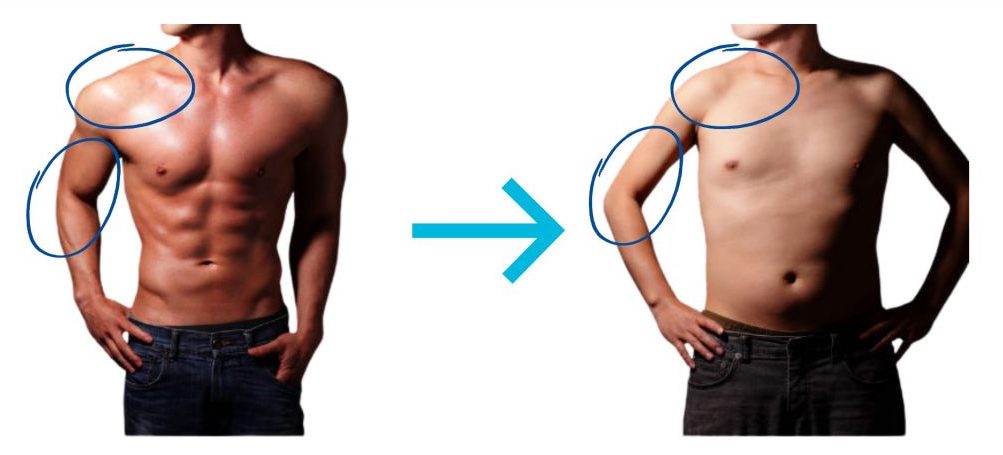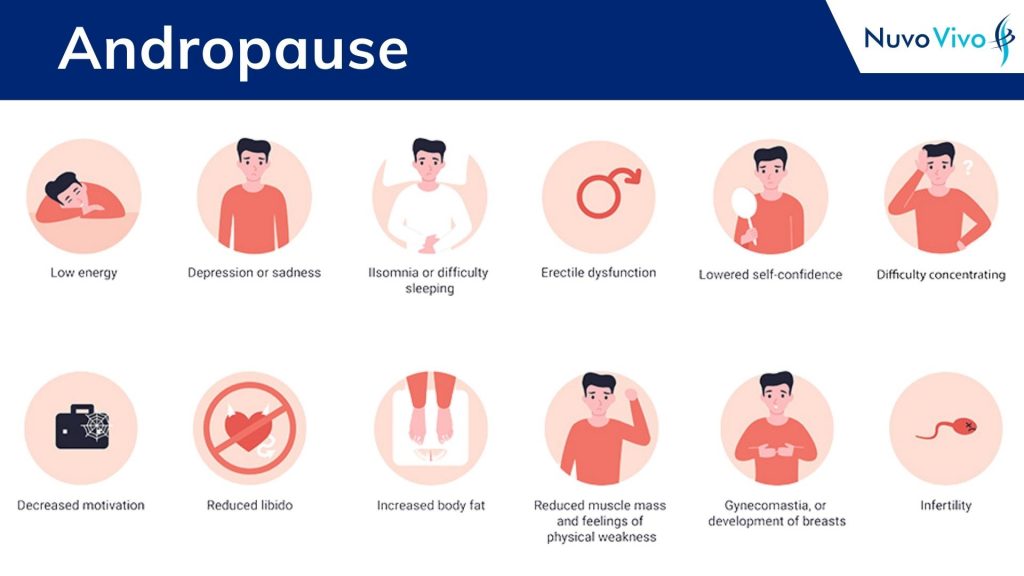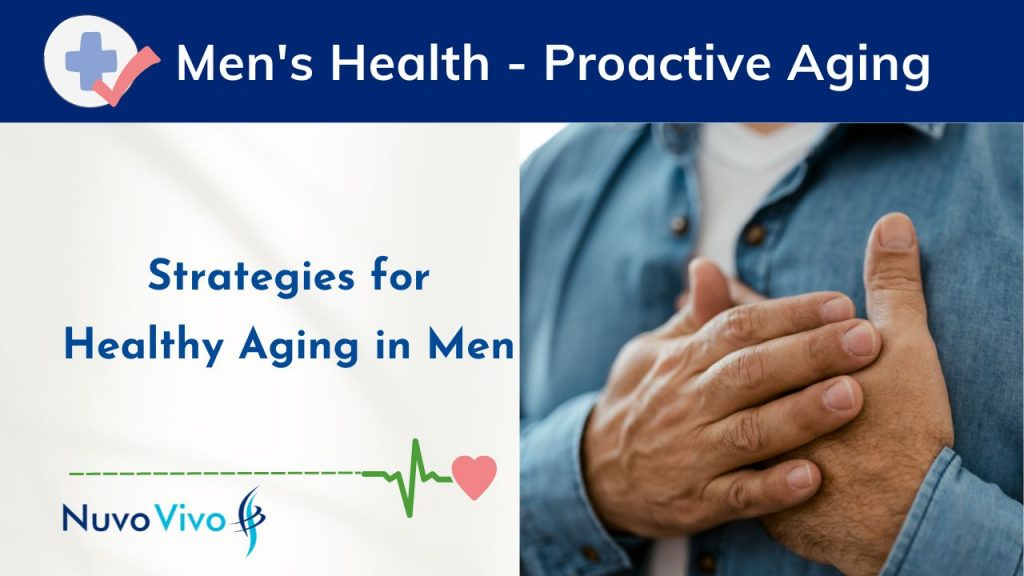Men’s Health Month, observed in June annually is aimed at raising awareness about the unique health challenges faced by men and encouraging them to prioritize their well-being. Cardiovascular diseases, including heart disease and hypertension, are leading causes of morbidity and mortality in men. Mental health issues, such as depression and anxiety, disproportionately affect men, with suicide rates being alarmingly high. Conditions like prostate and testicular cancer require attention, as early detection significantly improves treatment outcomes. Additionally, diabetes and obesity pose significant risks to men’s health and well-being.
Sadly, societal stigmas often prevent men from seeking the necessary healthcare and support they need. Culturally ingrained expectations of masculinity can discourage men from discussing their health concerns or seeking help, perpetuating a cycle of silence and neglect. Here are some of the most common health conditions that impact men specifically and some lifestyle tips to manage them.
Cardiovascular Diseases
Cardiovascular diseases, including hypertension (high blood pressure), high blood cholesterol and heart attacks are significant health concerns for men. Heart disease remains the leading cause of death globally, with men being particularly vulnerable.
Managing high blood pressure requires reducing sodium intake. It is important to remember that sodium is present not only in table salt but also in many packaged and processed foods. The recommended daily sodium intake is 2.3 grams, while just one teaspoon of table salt alone contains nearly 2.5 grams of sodium. Most individuals consume an excessive amount of sodium, ranging from 3 to 4 grams daily, primarily due to salt in the food and sodium from processed and packaged foods. It is advisable to limit sodium intake to below 2 grams per day if you are hypertensive. Consuming potassium-rich foods such as raisins, bananas, coconut water, and avocados can also help lower blood pressure as potassium aids in the excretion of sodium through urine. Additionally, reducing body fat, quitting smoking, and moderating alcohol consumption all contribute to bringing blood pressure down to normal or near-normal levels.
Also Read: Lifestyle Tips to Improve Heart Health
Indian men are more prone to elevated blood cholesterol levels. It is important to note that high blood cholesterol can occur even without excessive consumption of red meat or cholesterol-rich foods. Processed carbohydrates, sugary beverages, sweets, and excessive calorie intake can all contribute to high cholesterol levels, which may lead to the formation of cholesterol plaques in the arteries, increasing the risk of heart attacks. After the age of 40, it is recommended to undergo routine cardiovascular evaluations every 3 to 5 years.
Regular exercise is beneficial to reduce the risk of heart attack, as our body builds collateral arteries, naturally bypassing the blocked ones. However, it is advisable to start gradually and pace the exercises, especially if one has been leading a sedentary lifestyle. Engaging in 30 minutes of exercise for 5 days a week is a great way to start. Highly intensive exercises, without adequate rest and recovery, may actually cause heart attacks – especially for those who have been leading a sedentary lifestyle.
Also Read: Managing Hypertension
Diabetes (Type 2 Diabetes)
Perhaps you are already aware that managing diabetes requires reducing carbohydrate intake, particularly sugar, engaging in regular physical activity, and ensuring adequate sleep. Increasing fibre intake and consuming protein-rich foods can also be beneficial in regulating blood glucose levels.
It is important to exercise caution when increasing protein intake in cases of uncontrolled blood glucose levels and diabetic kidney diseases, over the long term, as it may potentially impair kidney function. In addition to dietary modifications, incorporating exercise into your routine, especially weight training can greatly improve insulin sensitivity. Weight training exercises help improve muscle quality and increase the storage capacity for glucose in the form of glycogen within the skeletal muscles, thereby aiding in better blood glucose management.
While medications, if prescribed by a doctor, play an important role in diabetes management, it is crucial to understand that lifestyle changes are the cornerstone of managing chronic conditions like diabetes. Relying solely on medications to control glucose levels without implementing lifestyle improvements can lead to a worsening of the condition and the development of associated complications in the future. The good news is – with structured and scientific lifestyle changes, you can perhaps reduce your reliance on medications – of course, based on your doctor’s advice only!
Regular monitoring of HbA1c (a measure of average blood sugar levels over a three-month period), lipid profile, and kidney health is recommended for individuals with diabetes to ensure comprehensive management and early detection of any potential issues.
By adopting a holistic approach that combines appropriate dietary choices, regular physical activity, adequate rest, and consistent monitoring, individuals with diabetes can effectively manage their condition and reduce the risk of complications. However, it is always advisable to consult with a healthcare professional for personalized guidance and to develop a comprehensive diabetes management plan.
Also Read: How to reverse diabetes naturally
Prostrate Health
The prostate gland, a small walnut-shaped organ located just below the bladder, plays a crucial role in men’s health. However, it is susceptible to various problems that can affect a man’s well-being. One common issue is Benign Prostatic hyperplasia (BPH), which occurs when the prostate gland enlarges and puts pressure on the urethra, causing urinary symptoms like frequent urination, weak urine flow, and difficulty starting or stopping urination. While BPH is not cancerous, it can significantly impact a man’s quality of life. Lifestyle modifications, such as reducing caffeine and alcohol intake, staying hydrated, and practising pelvic floor exercises, may help alleviate symptoms. In more severe cases, medication or surgical intervention as prescribed by a urologist might be necessary to manage BPH effectively.
Prostate cancer is another significant concern that affects men’s health. It is the most common cancer in men, with early detection and treatment being crucial for successful outcomes. As men age, the risk of prostate cancer increases, highlighting the importance of routine screenings. A PSA blood test that measures the level of prostate-specific antigen, a protein produced by the prostate gland is recommended to keep a tab on the prostate health for indication of prostate cancer or other prostate conditions.
Erectile Dysfunction (ED)
Erectile dysfunction (ED), also known as impotence, is a common sexual health issue that affects many men. It refers to the inability to achieve or maintain an erection sufficient for sexual intercourse. Causes of ED can range from physical factors such as underlying health conditions (e.g., diabetes, heart disease), hormonal imbalances, and certain medications, to psychological factors such as stress, anxiety, or depression. It is important for men experiencing persistent or recurring erectile dysfunction to seek medical advice as it may be a sign of an underlying health condition that needs to be addressed. Treatment options for ED may include lifestyle changes, counselling, medications, or other interventions based on the underlying cause
Pelvic floor exercises such as kegel can help alleviate ED to some extent based on the underlying cause

Muscle Wastage
Age-related sarcopenia is a condition characterized by the gradual loss of muscle mass, strength, and function that occurs as a person gets older. sarcopenia involves a progressive decline in muscle mass, typically starting in middle age. This loss of muscle tissue can lead to decreased strength and physical performance. Several factors contribute to the development of age-related sarcopenia, including hormonal changes (such as reduced testosterone and growth hormone levels), decreased physical activity, poor nutrition, chronic inflammation, and altered protein metabolism.
Sarcopenia can have significant consequences for an individual’s functional abilities. It may result in reduced muscle strength, decreased mobility, balance issues, increased frailty, and difficulties in performing activities of daily living. Muscle loss and decreased strength associated with sarcopenia can increase the risk of falls and related injuries, such as fractures. This can have a significant impact on an individual’s independence and quality of life.
Although age-related sarcopenia is a natural part of the aging process, its progression can be slowed down and managed through lifestyle interventions. These interventions include regular resistance training exercises to maintain muscle mass and strength, consuming a balanced diet with adequate protein intake, and addressing any underlying health conditions that may contribute to muscle loss.

Andropause – The Male Menopause
Andropause, also known as male menopause or late-onset hypogonadism, refers to a gradual decline in testosterone levels in ageing men, which is a significant concern when we talk about men’s health. While not all men experience the same symptoms or degree of hormonal changes, andropause can have various effects on physical, sexual, and emotional well-being. Testosterone, the primary male sex hormone, naturally decreases with age. This decline in testosterone levels can lead to various symptoms, including fatigue, reduced muscle mass and strength, increased body fat, decreased libido, erectile dysfunction, mood changes, and decreased bone density
Unlike menopause in women, andropause does not involve a clear-cut marker such as the cessation of menstruation. Diagnosis of andropause is often based on the presence of symptoms and a blood test to measure testosterone levels. Treatment options for andropause include lifestyle changes, such as regular exercise, a balanced diet, stress management, and adequate sleep. In very rare cases, if required, your doctor may recommend hormone therapy.

Conclusion
Maintaining a healthy lifestyle is crucial for men’s health, overall well-being and managing almost all health conditions – let it be diabetes, heart health or even andropause. 30 mins of daily exercise in a structured and scientific manner will have a far-reaching effect on improving your mental well-being also, apart from your physical health. It is recommended to include a mix of physical exercises involving yoga, cardio and weight training that suits each individual’s physical condition. Also, do not rationalise walking as an exercise; it is just an activity (a great activity though). The benefits of physical exercise are far more than that of an activity like walking.
Apart from exercises, a nutritious diet rich in fruits, vegetables, and whole grains, stress reduction techniques (such as mindfulness or meditation), and maintaining a healthy weight can positively impact hormone balance and overall health of men
About NuvoVivo
NuvoVivo is an online health and fitness company that helps its client manage lifestyle diseases. Our clients join us from across the world to manage or reverse conditions such as diabetes (and its complications), cardiovascular diseases (hypertension, high cholesterol), fatty liver, PCOS, thyroid disorders, IBS etc. We help them reduce their reliance on medications through structured and scientific lifestyle changes that suit their cultural habits and medical conditions. Our team provides a diet plan, exercise plans and the necessary follow-up and support in helping them achieve this
Reach for Consultations @ https://bit.ly/NVConsultation
More about NuvoVivo @ https://linktr.ee/nuvovivo


This Post Has One Comment
Pretty! This has been a really wonderful post. Many thanks for providing these details.